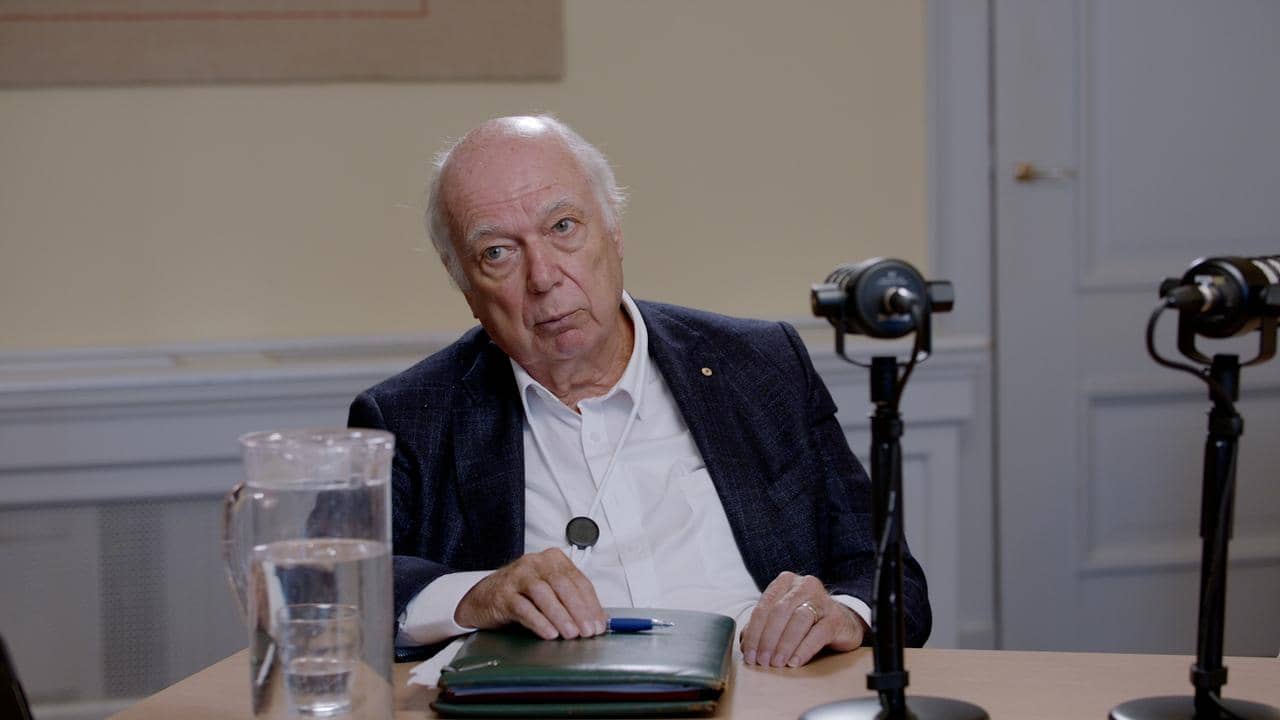
Theme video: Craftsmanship
Generalists versus specialists
It was the hardest job I ever did because I had to learn from scratch.
I had nine divisions, six of them run by military...
that I had to work out how to deal with, the generals and the air vice-marshals...
and all the rest of them. And how do I make that all work?
And I did learn the issues of good management, where the key issue is...
getting the right people in the right place and having very good reporting arrangements.
You get the right people, so they can get on with it.
You don't get on with it, but you've got to have confidence in those people...
and in the way in which they report to you and keep you updated on what's going on.
Is this a similarity between you both? Finding the right people in the right place.
Yes, I really agree. And also being exact people.
I mean, I'm a natural scientist. You're a mathematician.
I think that has a lot to do with it.
Just a little aside on that, very early on in my career...
a former very senior public servant had retired...
then the Chancellor of the Australian National University.
I listened to a lecture he gave and that would have been all of '21, '22.
And he said: The best generalist manager is somebody who's been a specialist.
And that has always stuck with me...
because as you move into more senior jobs you don't use your special expertise as much.
But if you've been a specialist...
you know how important it is to have it, and so you'll marshal it.
You'll make sure you're nurturing it in your organisation, and you use it.
So that was really good advice to me.
The generalist is probably an unfair term...
because the person who's in those top jobs, they're a specialist in good management...
and in dealing with the Parliament.
Don't you have to be a specialist in something?
I think having been a specialist in something in the past...
makes you much more aware of how important that is.
One of the best pieces of advice I ever got...
was by somebody who was a super specialist.
He said: If you're making a team, you must have somebody who drinks beer.
But it's true. You can't just have all serious people.
Somebody's got to...
Getting that mixture right is hugely important.
I agree with that.
Salaries in the public sector: fairer distribution, but no deciding factor
To be able to use salary to increase quality of...
I don't think it's very important. -No?
No. -I think it's a satisfier.
It's not an incentive.
You need to make sure that they feel they're paid what they would be paid elsewhere.
But once they're in, there are all sorts of other motivations to stay in.
You need to have reasonable variations as you go up...
that the staff feel they're comfortable with.
But if you start with that, see problems of attraction, retention going up...
well, then you have to adjust.
But it doesn't mean we have to replicate the private sector all the way through.
And you've got to not feel embarrassed at a birthday party...
that you're being a real fool to be a public servant.
It's got to be reasonable, and it is reasonable.
And most of the people you really want are intrinsically motivated.
I mean, while I think we overpay at the very top...
I don't like a lot of the countries what they pay.
I think that they've got some problems in the level they pay.
It doesn't cause too much problems...
that our senior public servants get paid a lot more than the Prime Minister.
The difference now, has become such that it is causing problems.
We were talking about poverty. It's a real problem that civil servants get so much...
and that people who are police and nurses are getting absolutely nothing, and teachers.
The relativities within the public sector are a problem. I agree with that.
And a bigger problem than what you have to pay at the top, I think.
And it's a moral problem.
And I think civil servants should be worried about moral problems.
Watch the entire episode on detopkijktom.nl